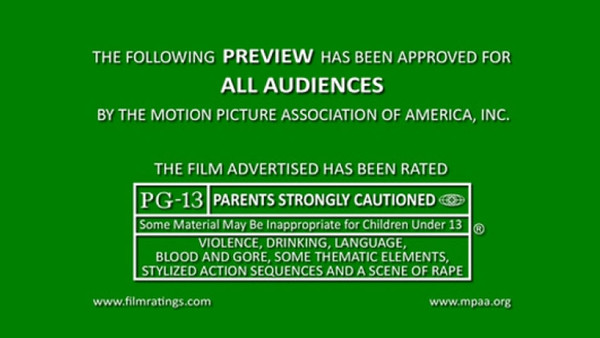The Absolute Worst Thing Movie Trailers Do
Can we stop TL:DR teasers on teasers please?

We need to talk about trailers.
For years now, the industry standard of previewing movies have taken a bashing for a number of reasons and it's mostly because when they work, they're brilliant. Unfortunately, they also spoil too much, misrepresent movies entirely and flat out trick us with things that aren't in the movie.
But you can see why they do all of that: it's all creativity in the name of selling a movie and there's actually something to admire in a trailer company taking something as bad as Suicide Squad and making it look incredible in a trailer. After all, it was their work that made that film so financially successful and made a sequel possible. That might feel like a con, but we've got a James Gunn Suicide Squad movie to look forward to now, chiefly because the con worked.
What is less easy to forgive - and what serves far less tangible purpose - is this culture of trailing the trailer. Lots of words of complaint have already been written and spoken about trailer teases announcing the impending arrival of a trailer (usually on social media), but again they serve a purpose. It's a positive begrudgingly admitted, but you can't argue with the value in sign-posting to social media. So why the complaint about teasing?
Well, it's a different element of that culture that's currently the worst thing movie marketing departments do: it's when they trail their own trailer with a trailer for their trailer. Way too many modern trailers now come with a Too Long Didn't Read primer on the front of them: a sort of three-second morsel showing off the major points of interest that are coming up as if the audience needs the bait to stay invested.
The studios will no doubt say this is no more than a clever way to preface exciting moments and whip up immediately hype to make sure the watcher is already in a state of excitement when they watch the full trailer. But that's no more than cheap manipulation and worse, it suggests that the audience cannot be trusted to form their own opinions and emotions. Or that they need to be led into the correct state, at the very least.
The problem here is that this approach says everything about the way movie marketers see audiences these days and unfortunately, it's the kind of encouragement that catering to that sort of assumption leads to. Fundamentally, assuming your audience cannot commit to waiting literally seconds from clicking on your trailer to it actually starting without losing their interest or being distracted. That is a hell of a statement to make about your fans.
It's fair to say that attention spans are now different to what they were even a few years ago and YouTube viewing statistics do suggest people can't watch long videos without their interest levels dropping badly, but catering to that trend by making these Vine-like summaries of a trailer to run on the front of them is just encouraging it to get worse. Plus, it spoils the flow of the video and ruins the impact of big moments that have already been cherry-picked out.
This all needs to stop and the sooner studios drop the gimmick the better.